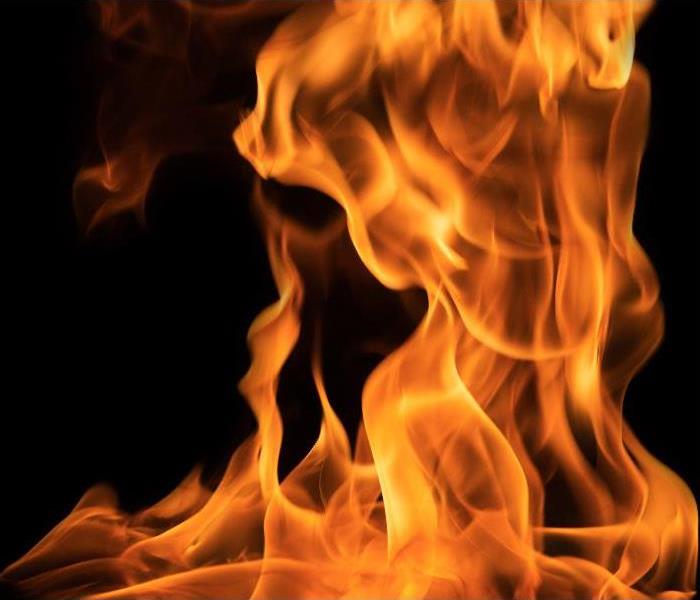Do I Need Experience to Restore my Newburgh Home After a Fire?
5/24/2020 (Permalink)
Fire and Smoke Restoration has a Steep Learning Curve, and Nothing Beats Practical Experience Working On-site in Newburgh
How do I start fire restoration at my property?
The first step in fire damage restoration for Newburgh residents is to notify your insurance provider. Your insurance company can then dispatch an adjuster to catalog losses for claims review. After contacting your insurance company, you should contact a certified restoration firm to restore damages to your home and contents. Smoke residues can settle into surfaces or fabrics as time passes. Equally, water or foam used in the firefighting procedure can cause problems or lead to further losses. SERVPRO offers twenty-four-hour support to residents because we understand that fire losses are a time-sensitive situation and need a quick response to ensure a full recovery.
What fire hazards exist in residential property?
• Solid combustibles include textiles, papers, woods, and plastics. These can be found throughout a home environment and can be ignited by exposure to naked flames like candles or cigarettes
• Flammable liquids which can include grease in your kitchen, fuels like ethylene or gasoline and alcohols
• Electrical fires. Home environments are full of appliances, wiring and electronic devices that can present a fire risk if they malfunction or become insecure
• Flammable Metallic substances like sodium, lithium or potassium can be rare in a home environment but are highly-flammable requiring special extinguishers
What different types of fire extinguishers are there, and when should I use them?
Fire extinguishers come in different shapes and sizes. The most recognizable extinguisher uses pressurized water to douse flames. These are useful when solid combustible materials like curtains catch fire. The remaining classes of fire extinguisher use dry chemical foam or carbon dioxide, which are crucial in bringing electrical fires under control as well as flammable liquids. Never use water on fires electrical or chemical fires. Other extinguishers use wet chemicals that are effective against grease fires and cooking fires- the most common cause of house fire in Newburgh.
Does the type of fire affect restoration?
Different fuels and types of fire are an influential factor in the restoration approach. Technicians with experience can accurately assess different types of fire damage after the fact. Being able to identify smoke residues is essential to using the correct methods to restore a property. Cooking fires that involve animal fats, for example, can result in stubborn residues which respond poorly to water and can spread around easily during cleaning. We use oil-based solvents to dissolve greasy soot deposits before rinsing both solvent and soiling to remove them effectively.
What can I do to prevent fires in my home?
• Never leave a stove unattended while cooking
• Perform regular maintenance checks of appliances in the home. Also, be vigilant against 'daisy-chaining' equipment using extension cords
• Perform yearly maintenance checks on the wiring in your home and especially before the winter months when you are using more electricity
• Keep naked flames away from solid combustible materials like curtains, paper, artwork or woods
• Regularly check your furnace to avoid future puff-backs
How do I get rid of odors after a house-fire?
Odor control is essential to returning a home to its preloss condition. The ruling principle of odor control is to disperse deodorants using a similar method to those that caused the odor. In a fire, odors from combusting materials travel upward into cooler air pockets. As they travel, they deposit onto surfaces or enter small crevices in the home like light-fittings. Misters vaporize deodorants, releasing the vapor into the home. Usually, we use water-based solvents that take less time to clear from the home environment but still travel into tough to reach areas of the home. SERVPRO technicians can place venting box fans in the property to ensure that deodorants are thoroughly ventilated out of the property. We exchange indoor air up to fifty times before clearing the area for safe usage.
How can I get help filling in my insurance claim?
Most of your claim is fulfilled by informing your adjuster of losses and their relative values. These items are then given a subtotal and sent for review by your insurance provider. SERVPRO understands that it can be tiresome to relay thousands of items to an adjuster, which is why we offer to help customers with their claims. During service, our crew chiefs document work carried out in a digital ledger. When the restoration journey is complete, we can pass this document onto your insurance provider as part of our stress-free claim initiative. We always finish the restoration by conducting a walk-through where we explain all aspects of restoration and outcomes with you.
For experienced restoration assistance, contact SERVPRO of North Orange County at (845) 342-3333.






 24/7 Emergency Service
24/7 Emergency Service